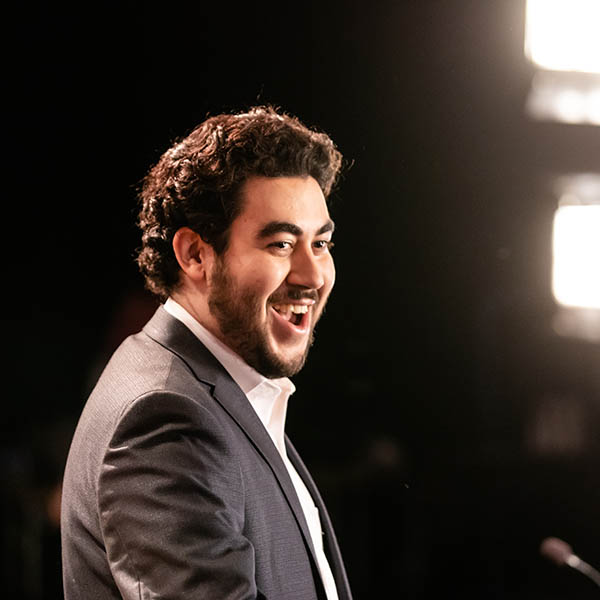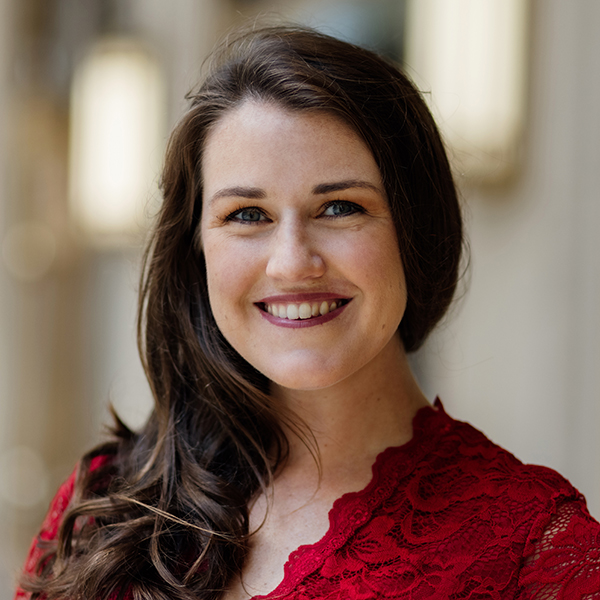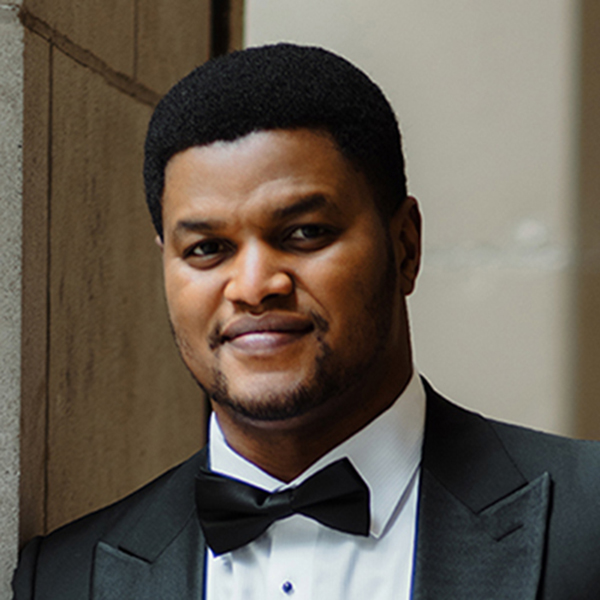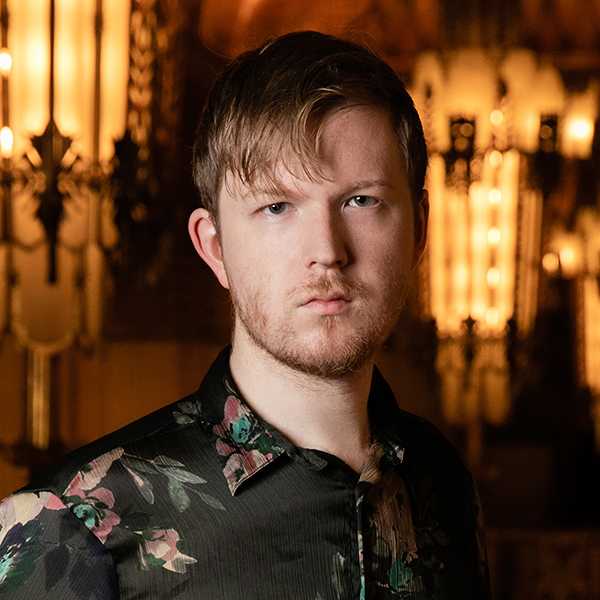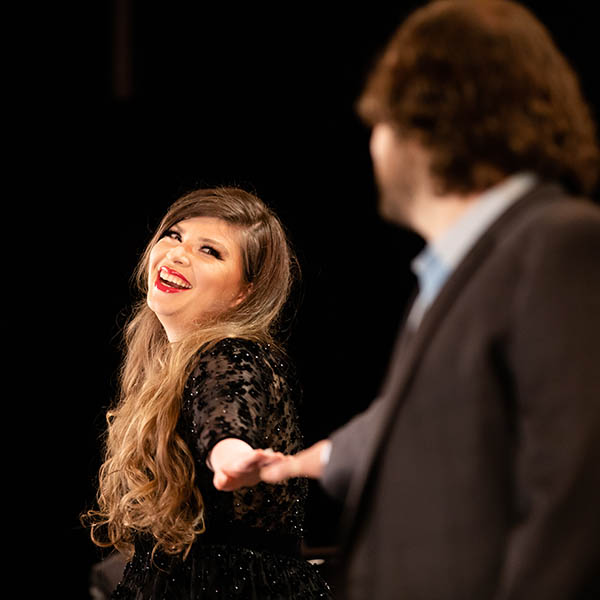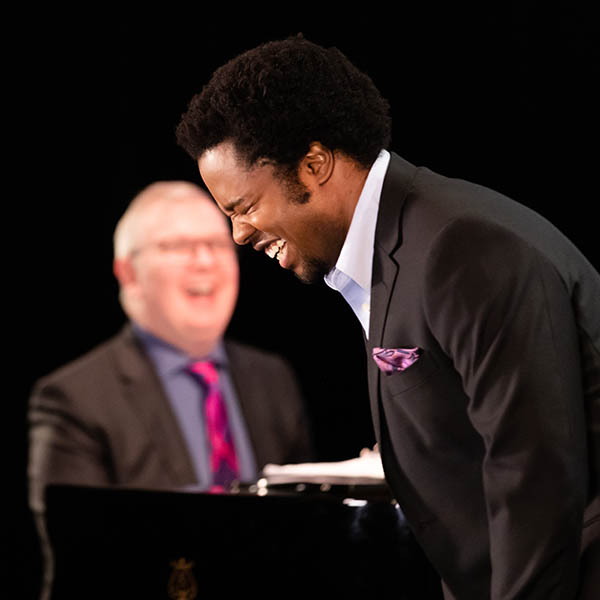Gioachino Rossini, La Cenerentola, "Tutto è deserto...Un soave non so che" ("All is deserted...A sweet something")
Katherine Beck, mezzo-soprano; Lunga Eric Hallam, tenor; Chris Reynolds, piano
For the 24-year-old Gioachino Rossini (1792-1868), La Cenerentola (Cinderella) was already the twentieth opera in a career then just seven years old. His works had been predominantly comedies, with which he was single-handedly revitalizing comic repertoire in Italian opera houses. La Cenerentola (1817) isn't pure comedy—instead, the composer and his librettist, Jacopo Ferretti, classified it as a "dramma giocoso" ("cheerful drama," now commonly known as a "dramedy"). They present only one totally comic figure, the prince's witty and clever valet Dandini. Cenerentola's stepsisters are unrelentingly silly when chattering with each other but nasty to Cenerentola, and the behavior of her father, Don Magnifico, is even worse. The work's heart comes from Cenerentola herself, and from the ardent prince who falls in love with her. Rossini's most emotionally affecting moment in this score—a scene demanding the ultimate in both expressive elegance and technical adroitness—is the duet in which these two encounter each other for the first time.
Magnifico's household is about to receive the prince, Don Ramiro, whose courtiers will be formally inviting the young women of the house to the ball where he will choose a bride. Ramiro has exchanged clothes with his valet in order to observe Magnifico's daughters without being recognized. Arriving alone, Ramiro finds no one in the foyer of the house except Cenerentola, who literally runs into him. She's deeply apologetic and confused, and he falls instantly in love with her. He begins their duet by confessing that there's a sweet feeling in his heart that he's never felt before. She answers with her own confession: her heart is beating so fast, and she doesn't know why. In the second half of the duet, Cenerentola tries to explain her complicated family history but again gets deeply flustered, which endears her to Ramiro even more.
